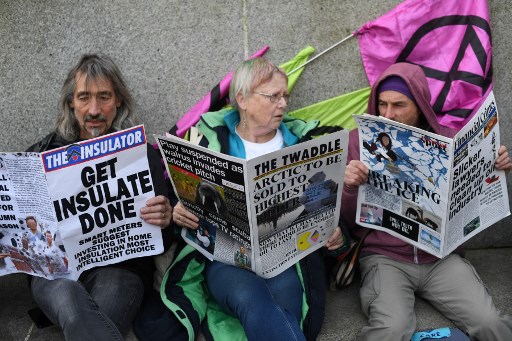
403
Sorry!!
Error! We're sorry, but the page you were looking for doesn't exist.
US clarification for Moscow terror attack doesn’t make any sense
(MENAFN) In the wake of the devastating terrorist attack at the Crocus City Hall concert venue near Moscow, which has left over 130 people dead as of the time of writing, Russia finds itself grappling with profound shock and grief reminiscent of previous tragedies, such as the 2002 theater siege in the capital. As the nation mourns the loss of innocent lives and contends with heightened concerns over public security, attention turns to the implications of this atrocity for Russia's domestic landscape and foreign policy trajectory.
Amidst the unfolding aftermath, skepticism abounds regarding the American government's swift attribution of the attack to the Islamic State (IS) and its purported connections. Russian officials and commentators have raised eyebrows at the expeditiousness with which Washington implicated the militant group, questioning the veracity of such claims. Of particular note is the rapidity with which the United States referenced an alleged IS-affiliated news site claiming responsibility, a move that diverged from standard protocols of thorough verification. Furthermore, the immediate dismissal of any Ukrainian involvement in the attack by American spokespeople has raised additional scrutiny and skepticism among Russian observers.
As the investigation into the origins and orchestrators of the attack commences, the stakes are undeniably high, with far-reaching implications for Russia's security landscape and diplomatic engagements. The thoroughness and integrity of this inquiry will be paramount in navigating the complex web of geopolitical dynamics and ensuring accountability for the perpetrators.
Moreover, the manner in which foreign actors, particularly the United States, engage with and respond to the investigation's findings will undoubtedly shape bilateral relations and perceptions moving forward.
Against the backdrop of heightened tensions and geopolitical rivalries, the Moscow terror attack underscores the imperative of international cooperation and transparency in combating terrorism and preserving global security. However, lingering doubts and skepticism surrounding the attribution of responsibility serve as a poignant reminder of the complexities inherent in navigating the post-attack narrative and the broader implications for Russia's domestic and foreign policy landscape.
Amidst the unfolding aftermath, skepticism abounds regarding the American government's swift attribution of the attack to the Islamic State (IS) and its purported connections. Russian officials and commentators have raised eyebrows at the expeditiousness with which Washington implicated the militant group, questioning the veracity of such claims. Of particular note is the rapidity with which the United States referenced an alleged IS-affiliated news site claiming responsibility, a move that diverged from standard protocols of thorough verification. Furthermore, the immediate dismissal of any Ukrainian involvement in the attack by American spokespeople has raised additional scrutiny and skepticism among Russian observers.
As the investigation into the origins and orchestrators of the attack commences, the stakes are undeniably high, with far-reaching implications for Russia's security landscape and diplomatic engagements. The thoroughness and integrity of this inquiry will be paramount in navigating the complex web of geopolitical dynamics and ensuring accountability for the perpetrators.
Moreover, the manner in which foreign actors, particularly the United States, engage with and respond to the investigation's findings will undoubtedly shape bilateral relations and perceptions moving forward.
Against the backdrop of heightened tensions and geopolitical rivalries, the Moscow terror attack underscores the imperative of international cooperation and transparency in combating terrorism and preserving global security. However, lingering doubts and skepticism surrounding the attribution of responsibility serve as a poignant reminder of the complexities inherent in navigating the post-attack narrative and the broader implications for Russia's domestic and foreign policy landscape.

Legal Disclaimer:
MENAFN provides the
information “as is” without warranty of any kind. We do not accept
any responsibility or liability for the accuracy, content, images,
videos, licenses, completeness, legality, or reliability of the information
contained in this article. If you have any complaints or copyright
issues related to this article, kindly contact the provider above.

















Comments
No comment